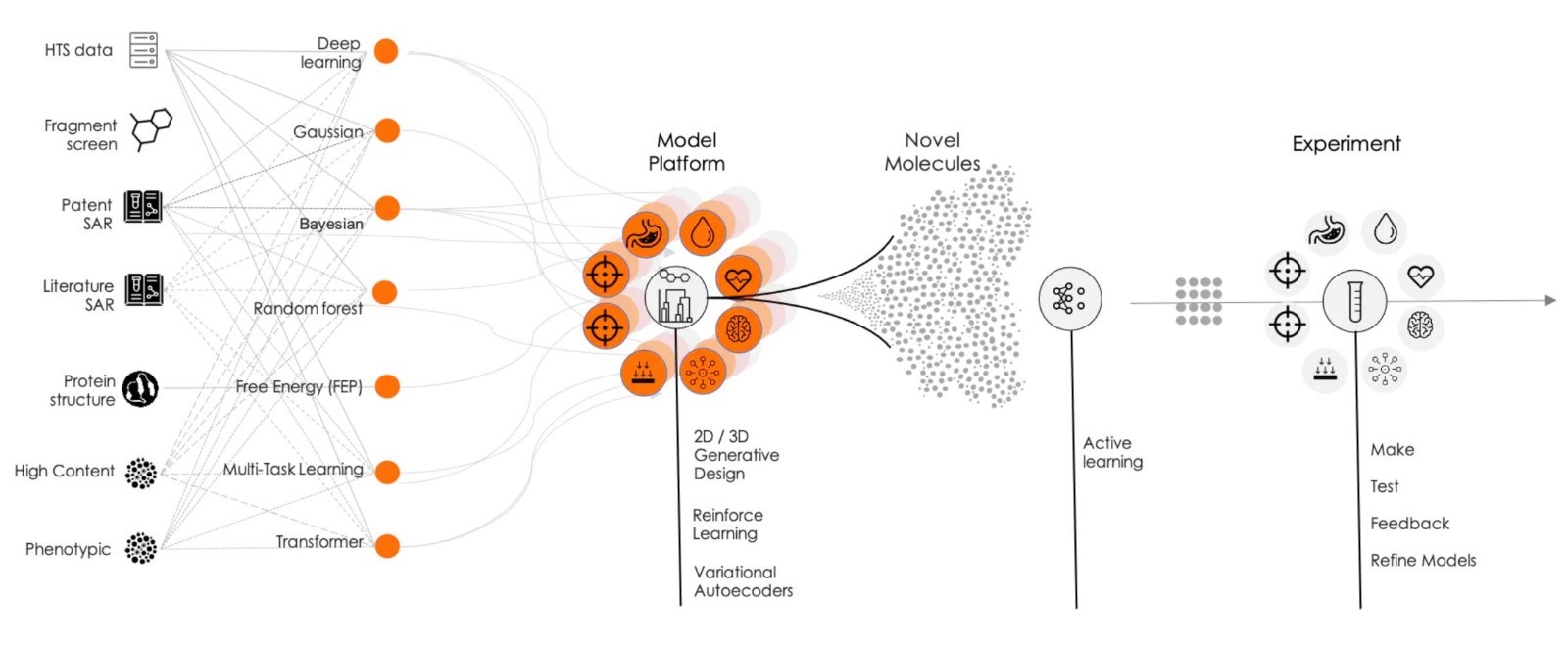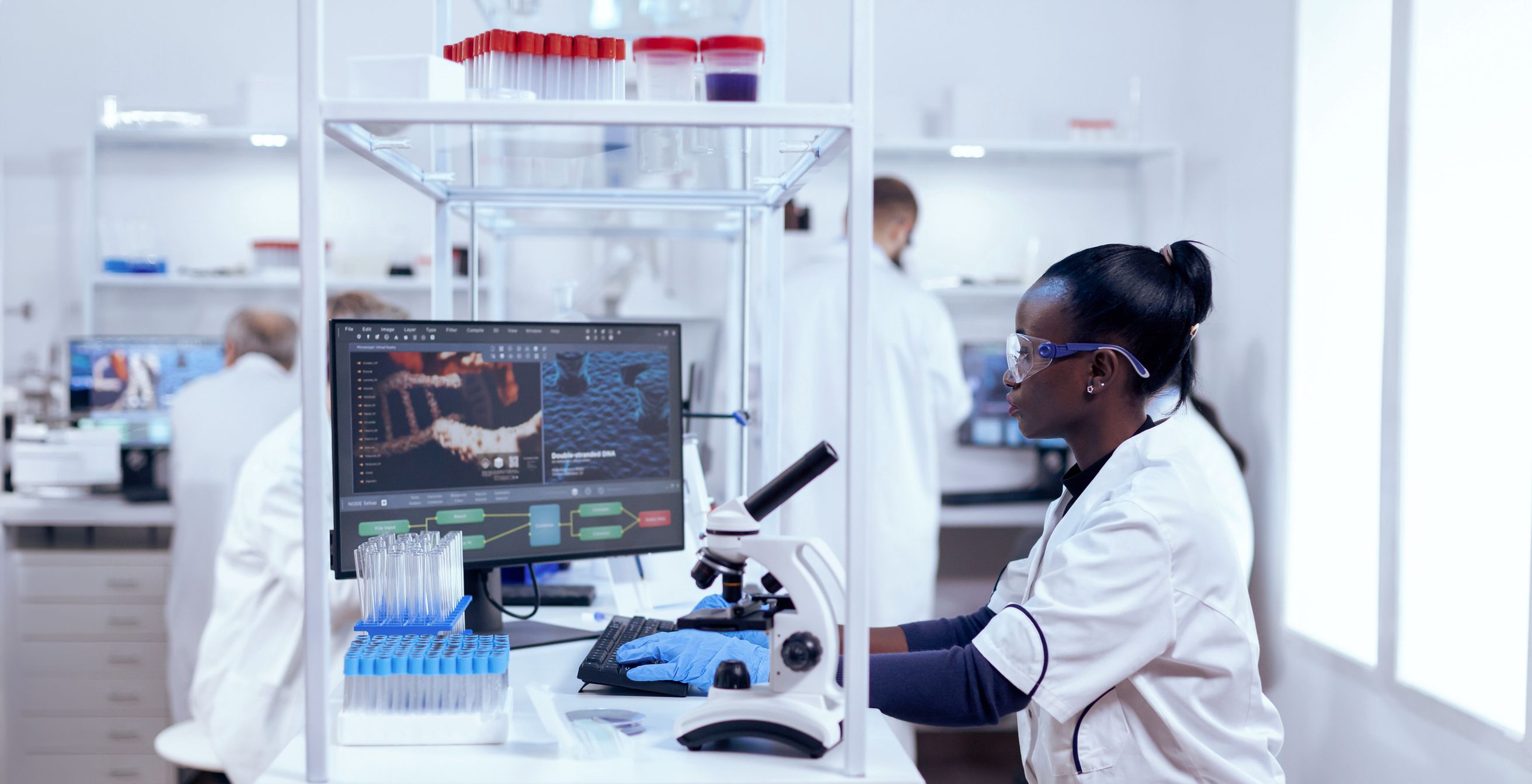We’ve seen first-hand just how profoundly impactful life sciences research and drug development can be. During the Covid-19 pandemic, laboratory teams rapidly developed vaccines to address the crisis. More recently, GLP-1 agonists have been introduced to aid in managing obesity and its related health complications, presenting new approaches to complex health conditions.
However, drug development of tomorrow is likely to be significantly different. The pharmaceutical industry – like many others – is on the cusp of transformation thanks to the capabilities of artificial intelligence (AI). It has been predicted that AI will save the drug research and development industry $70 billion by 2028. But the transformative potential of this technology goes far beyond cost savings.
Let’s take a closer look at how AI is revolutionising the process from drug discovery and development to manufacture.
Transforming drug discovery
Research into new drugs is a long and costly endeavour, sometimes setting teams back ten years (and millions of dollars). That may now all be set to change.
Companies including Exscientia, Standigm and Genesis Therapeutics, are already focusing on AI-powered drug discovery using their own, custom-built platforms. These
compress lengthy processes and cut their price tags using techniques such as:
- Virtual screening
Rather than physically testing the compounds of vast libraries of molecules, virtual screening tools process existing datasets to accurately simulate potential reactions, dramatically expediting the identification of potential drug candidates.
- Algorithm based analysis
Algorithms can analyse the chemical structures of compounds to predict which ones will be likely to make effective drugs. This filters down the list of compounds worth further analysis at a fraction of the time and cost of prior methods.

An example of Exscientia’s AI platform for drug development
Accelerating drug development
AI-powered drug development is now increasingly used to optimise the design of drug molecules for higher efficacy and lower toxicity. Algorithms can predict the three-dimensional structure of a protein and even design a drug that will be able to bind to it – a technology that provides significant potential during the development phases.
- Pre-clinical studies
Segments of the in vitro testing workflow can be automated according to the previous outputs of high-throughput screening assays. Algorithmic analysis then draws upon in vivo animal testing records to more accurately identify potential side effects of drugs in humans.
- In silico testing
This field provides one of the most transformative use cases for AI in drug development, continually evolving with technological advancements. This simulation testing reduces reliance on real-world trials by using predictive learning models to computationally simulate tests in their entirety. As it progresses, this technology is set to slash the time and expense of bringing new drugs to market.
Enhancing clinical trials
Machine learning in clinical trials can help identify new drug targets and optimise the efficiency of trial design. For example, algorithms can now analyse large datasets of patients’ electronic health records (EHRs) to identify those likely to respond to a particular drug.
In computational drug repurposing AI uses EHRs and other datasets to pre-identify new uses for existing drugs. By shrinking the time it takes for fresh applications to emerge in clinical use, countless conditions could suddenly become more treatable. This simply was not possible before the advent of AI and big data.
Optimising drug manufacturing
Once a drug has been approved for use, AI can drive efficiency in the manufacturing process.
AI algorithms trained on process development data and applied at the process design and scale-up stages can identify the optimal parameters, reducing development time and waste.
AI also has significant implications for quality control. By using AI in combination with ultraviolet-visible or Fourier-transform infrared spectroscopy, critical process parameters can be monitored without human oversight.
The result? A massive reduction in the time it takes to ensure drugs brought to market are safe and effective.
The future of AI in pharmaceuticals
By optimising each stage of the drug development process, AI holds the potential to significantly accelerate the time-to-marketor safe, effective and repurposable drugs. This could usher in a phase of exponential growth in pharmaceutical productivity.
To discover more ways that AI is shaping the pharmaceutical industry – along with the rest of the healthcare and life sciences landscape – download our whitepaper: Unlocking the Potential of Generative AI in Healthcare and Life Sciences
